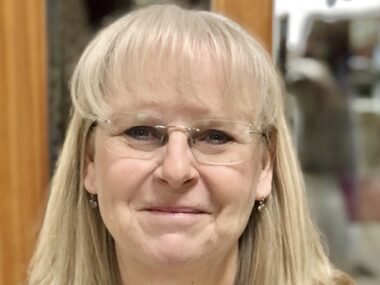How I stay in my lane when writing about ALS
I've learned to emphasize my specialties — wellness, motivation, and stress relief
Written by |

The phrase “stay in your lane” is often posted on signs to help motorists drive through a construction zone. It’s also a basic rule when swimming side by side in a race with other competitors. In my life with ALS, I use one of the other meanings of the phrase: “mind my own business and stick to what I know.”
Lately, I’ve been chanting it a lot. Why? Because almost every time I go online to the ALS social media community, I run across people who are self-appointed experts in some aspect of the disease. Not real experts mind you, such as doctors or others in the medical field, but well-meaning patients, caregivers, and family members who carelessly pass along inaccurate information.
I’ve seen online that some consider ALS to always be a “1,000-day disease” (meaning, I assume, that patients have only 1,000 days of life). That’s not in line with my experience, nor that of many others.
Lessons learned
The importance of staying in my lane was a lesson I learned many years ago in a hospital emergency room (ER).
As I wrote in “Sign language and aerobic dance taught me a lesson in leadership,” I taught dance and fitness at a college where I was a graduate student and where a quarter of the students were hearing-impaired. That made learning American Sign Language (ASL) a must, and I quickly became a fluent signer. A few years later I was hired by a hospital to lead their wellness program. One of the students in my aerobic dance class was hearing-impaired, so I synchronized specific ASL with my verbal directions.
One day, a hearing-impaired person showed up at the hospital’s ER with a minor injury. Normally, the ER would contact the speech-language pathologist to provide ASL translation. But she was not available, and since word had spread about my skills, the ER called me. I agreed, and although apprehensive, showed up to the ER to meet the doctor and patient. It turned out to be an easy assignment, the patient went home happy, and I felt proud.
As time went by, the ER called on me more and more, spanning a couple of months. One time a patient waited for the doctor to leave and then asked for my opinion of the treatment plan the doctor had prescribed. Of course, I fully supported the doctor’s orders, but at the same time I realized my status as a volunteer translator had changed.
Not only were patients seeing me as a member of the ER medical staff and trusting my presence, but the doctors trusted me as well. I thought, “Geez, I could tell patients to go home, wear a red hat, and eat popcorn, and the doctor wouldn’t know any better.”
I was operating out of my expertise and needed to go back to my lane of fitness and wellness. As I shared my concerns with several ER nurses, they admitted they were interested in learning how to sign, specifically medical sign language. They did, and it was a happy ending all around.
But I learned a valuable life lesson that I depend on today. I write about wellness, motivation, and managing our stress. That’s my lane. Not medical treatments or therapies.
If you’re interested in learning the facts about ALS, I recommend you read “Demystifying ALS: Separating fact from fiction,” an excellent resource on ALS News Today. It’s one more way we can support each other while we learn to live well with ALS.
Note: ALS News Today is strictly a news and information website about the disease. It does not provide medical advice, diagnosis, or treatment. This content is not intended to be a substitute for professional medical advice, diagnosis, or treatment. Always seek the advice of your physician or other qualified health provider with any questions you may have regarding a medical condition. Never disregard professional medical advice or delay in seeking it because of something you have read on this website. The opinions expressed in this column are not those of ALS News Today or its parent company, Bionews, and are intended to spark discussion about issues pertaining to ALS.






Ashley
Appreciate the point but is the red hat intended to be a signifier here? If so thanks for letting us know
Dagmar Munn
Hello Ashley, oh my! I have no hidden agenda or coded messages in my stories. In fact, the incident I describe happened in the 1980s - - a much more innocent time than what we live in nowadays. Best wishes, Dagmar
Kelly heffern
Dagmar,
I was diagnosed with ALS in December I'm 61 years old and I want to tell you that I so enjoy reading your articles it has help to look at my situation so much better, I was fairly active and in shape before all this so I follow you on how you deal with all.
Thank you so much and keep on keeping on with the great articles. You are an inspiration to me!!!
Dagmar Munn
Kelly, Thank your for your kind words about my columns. I'm grateful for the opportunity to share my experiences with ALS and grateful that what I write is helping you. Best wishes to you, Dagmar
Hannu Laaksovirta
I have seen about 2500 patients with ALS during my career. Also, I have read many writings written by patients, their caregivers, relatives, and so on. Some texts are good and some are even better.
This one by Dagmar Munn is remarkably good, short enough, killing the writer's darlings, warm-heated, and interdisciplinary. Thank you.
Hannu Laaksovirta MD, PhD, neurologist.
Helsinki, Finland
Dagmar Munn
Dr. Laaksovirta, Thank you for your positive and kind words about my column. I'm happy to know that you consider what I write to be of value. Many appreciations! Dagmar